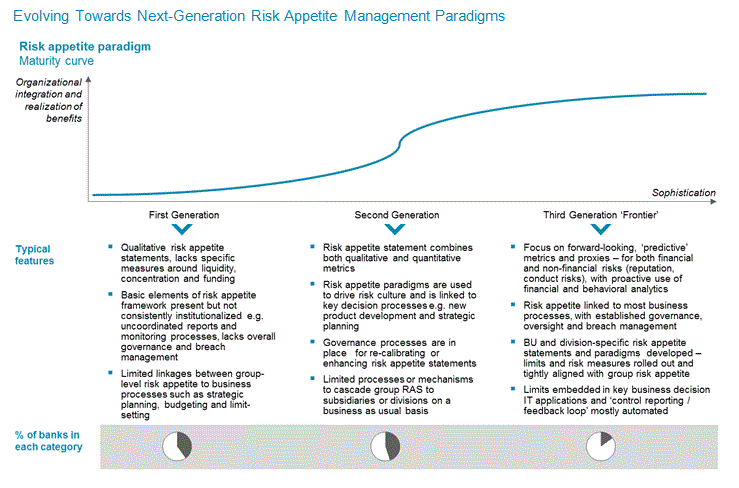Next-Generation Risk Appetite Management: Getting Real About Achieving Impact in Uncertain Times
Abstract
Celent presents strategic principles and tactical levers for success that can enable firms in their risk appetite implementation initiatives.

Prompted by regulator and investor pressures, most financial institutions have completed formal “first generation” exercises to establish Risk Appetite Statements (RAS), with some adopting more sophisticated next-generation capabilities to manage their tolerance and capacity for risk-taking. Nevertheless, despite encouraging progress, there is work left to be done.
As discussed in this report, Next-Generation Risk Appetite Management: Getting Real About Achieving Impact in Uncertain Times, firms are at various stages in their journey, yet wide disparities can still exist in the degree that they have operationalized and embedded risk appetite within their organizations, and the influence that risk appetite has on key decision-making processes.
The challenges reflect a complex interplay of soft and hard factors that sway the efficacy of a firm's risk appetite initiatives, such as risk culture change management, internal buy-in, performance/compensation alignment, and the timely and accurate integration of processes, reporting applications, and data ecosystems across various levels within the firm.
With corporate scandals and conduct-related effects manifesting for years after the financial crisis (and continuing), the divergence between “what you say” and “what you do” is becoming unpalatable. Firms which are caught up in corporate behavioral debacles are often slapped with hefty regulatory fines and significant falls in market capitalization.

“Anecdotal evidence suggests that, in the long term, firms which are consistent in what they say and do attract ‘positive multiples’ in terms of valuations and good will. This can decrease the drag of regulatory fines and remediation efforts,” says Cubillas Ding, a research director with Celent’s Securities & Investments practice and author of the report. “In this regard, there are tangible benefits to tangible management of risk appetite.”
This report contains six figures and tables.

